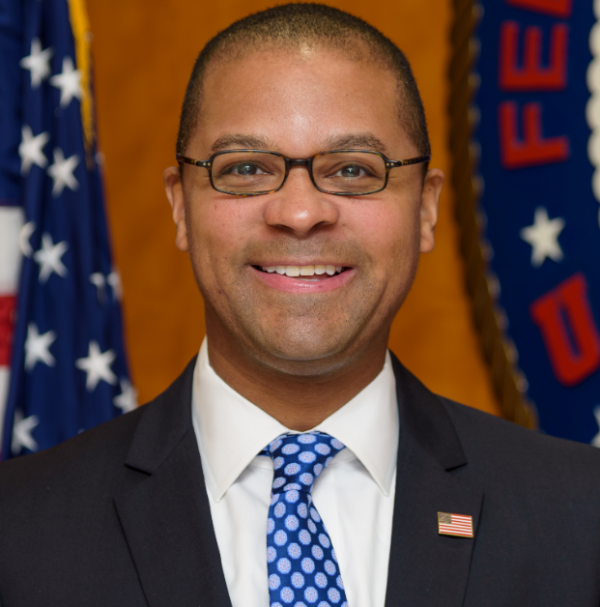With Starks' 'No,' FCC Wraps Up T-Mobile-Sprint Vote

The smarter way to stay on top of broadcasting and cable industry. Sign up below
You are now subscribed
Your newsletter sign-up was successful
With the dissenting vote of Democrat Geoffrey Starks joining that of Democrat Jessica Rosenworcel earlier in the day, the FCC has now voted 3-2 to approve the T-Mobile-Sprint merger.
The Republican majority had voted earlier to approve, giving the deal the necessary votes, but the Democrats had to be given time to cast their votes, which they did Wednesday (Oct. 16), before it was officially approved.
The Justice Department has already said it would not sue to block the deal after various conditions were added to address its antitrust concerns. But Starks made it clear he still had plenty of concerns that were not addressed, including after the announcement earlier in the day that the companies had struck an understanding with civil rights groups on diversity initiatives in a memorandum of understanding that struck some as echoing commitments made by Comcast in its purchase of NBCU.
“The Order concludes that the transaction will likely harm competition and raise prices, but that the parties’ commitments to expand service and divest assets will mitigate these harms," he said, referring to the initial commitments rather than the MOU initiatives. "But the analysis of how the benefits outweigh the harms is vague and unconvincing. The obligations imposed on the parties are so loosely drafted that meaningful enforcement will be impossible. The financial penalties for non-compliance will not effectively deter a company with billions of dollars in annual revenue. And the Order characterizes any penalties as tax-deductible “voluntary contributions,” meaning the American taxpayer will be left holding the bag for at least some of any penalties imposed on New T-Mobile."
“In short, I believe that T-Mobile and Sprint have not proven that their merger will benefit the public interest."
In what may have been a reference to the MOU, he added: "Vague promises do not change what was true when this deal was first proposed and what remains true today – the harms from this merger are not overcome by any condition imposed in the majority’s order. While I hope for the sake of consumers that I am wrong, I fear that we will one day look back at this decision and recognize it as a moment that forever changed the U.S. wireless industry, and not for the better.”
“This decision is a slap in the face to the American people," said senior counsel at New America’s Open Technology Institute. "The Trump Administration is rubber-stamping a blatantly anticompetitive merger that should be illegal under any serious antitrust or public interest analysis. It will raise prices, kill jobs, and worsen the digital divide. The fact that Chairman Pai has kept this order hidden from the public underscores how shameful it is."
The smarter way to stay on top of broadcasting and cable industry. Sign up below
“The FCC 3-2 vote in favor of the anti-competitive, job cutting T-Mobile/Sprint merger followed a fundamentally flawed process, lacking in transparency and failing to adhere to existing Commission rules and precedent," sid Communications Workers of America telecommunications policy director.
"This transaction remains deeply harmful to consumers and workers....Thankfully, the lawsuit from 17 state attorneys general stands on solid ground, with compelling facts and arguments on their side as they move closer to trial.”
“The majority-FCC’s vote to approve the disastrous T-Mobile-Sprint merger is a vote to raise prices, reduce innovation, and price out millions of low-income and marginalized communities from wireless service, "said former FCC chairman and current Common Cause special adviser Michael Copps. "All of the evidence shows that this deal is inherently illegal under antitrust law and does not meet the public interest criteria the FCC is required to follow. Rather than actually conduct a thorough public interest review of the merger, the majority at the FCC signaled it would approve the deal months ago pointing to promises and commitments made by T-Mobile and Sprint. But these promises and behavioral conditions are unenforceable and riddled with loopholes that do nothing to address the significant harms consumers would face from the merger."
Contributing editor John Eggerton has been an editor and/or writer on media regulation, legislation and policy for over four decades, including covering the FCC, FTC, Congress, the major media trade associations, and the federal courts. In addition to Multichannel News and Broadcasting + Cable, his work has appeared in Radio World, TV Technology, TV Fax, This Week in Consumer Electronics, Variety and the Encyclopedia Britannica.

